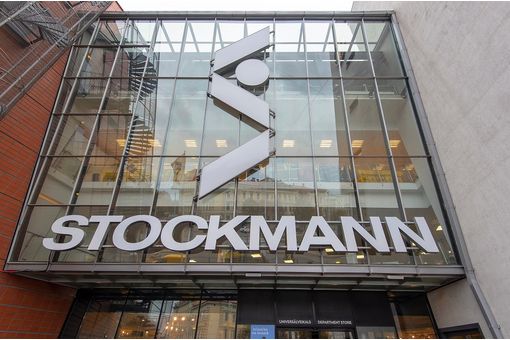Interviews
Weak demand for textile machinery a threat to export revenues
04 Sep '08
3 min read
The 48th Annual General Meeting of the Textile Machinery Manufacturers' Association (TMMA) was held on August 25 in Mumbai where a host of concerning issues were discussed threadbare.
With regard to the exports of machinery, records reflected stagnancy both in terms of overseas demand and exports, overshadowing the industry for the past three years.
Presently the country is exporting machinery products to Malaysia, Indonesia, Pakistan, Sri Lanka, Bangladesh, Egypt, Middle East, Africa, South America and a number of other European countries. Exports this fiscal are expected to fetch Rs4,850 million against Rs4,890 million recorded last year.
This slowdown in textile machinery during 2007-08 has also affected the growth in the textile engineering industry which has dropped from 26 percent to a petty 7 percent and which is likely to register a negative growth for 2008-09 fiscal as well.
While production of textile machinery, parts and accessories has increased from Rs27,990 million in 2006-07 to Rs29,970 million in 2007-08, recording an annual growth of 7 percent, import of textile machinery has dropped considerably from Rs94,340 million last fiscal to Rs75,000 million in 2007-08.
In an exclusive interview with Fibre2fashion, Mr S. Chakrabarty, General Secretary of TMMA, came upfront about some of the key reasons behind the decline in demand and overall growth of the machinery industry. He noted saying, “Slowdown in world economy and Indian textile industry in particular has been adversely affecting the machinery sector in a number of direct and subtle ways.”
Detailing on this point Mr Chakrabarty asserted that the Indian textile industry is in an extremely pathetic condition and since it is co-related to the textile machinery industry the latter is is also bound to get impacted by the backlash. Reasons have been attributed to higher cotton prices, increased power cost, non availability of power, increasing cost of labor and bad labor laws. Besides, accelerating rupee appreciation in the period between 2006-2008 have led to an acute recession in the demand for textile machineries
Orders for these goods have witnessed a drastic plunge of about 40-45 percent and while on the one hand companies are not taking deliveries on time, on the other, payments are also being delayed. As if this was not enough, large scale importing of second hand machineries and cheap Chinese equipments of inferior quality have also turned out be a nuisance for the domestic machinery industry.
In response to a question regarding the measures to be taken to check such alarming downtrend, Mr Chakrabarty opined, “Textile Industry needs to be provided by soft loans schemes. The industry also requires Government support and aid for modernization and research & development. Importing of components at zero duty can also be considered as a viable measure to boost up the textile machinery sector.”
With regard to the exports of machinery, records reflected stagnancy both in terms of overseas demand and exports, overshadowing the industry for the past three years.
Presently the country is exporting machinery products to Malaysia, Indonesia, Pakistan, Sri Lanka, Bangladesh, Egypt, Middle East, Africa, South America and a number of other European countries. Exports this fiscal are expected to fetch Rs4,850 million against Rs4,890 million recorded last year.
This slowdown in textile machinery during 2007-08 has also affected the growth in the textile engineering industry which has dropped from 26 percent to a petty 7 percent and which is likely to register a negative growth for 2008-09 fiscal as well.
While production of textile machinery, parts and accessories has increased from Rs27,990 million in 2006-07 to Rs29,970 million in 2007-08, recording an annual growth of 7 percent, import of textile machinery has dropped considerably from Rs94,340 million last fiscal to Rs75,000 million in 2007-08.
In an exclusive interview with Fibre2fashion, Mr S. Chakrabarty, General Secretary of TMMA, came upfront about some of the key reasons behind the decline in demand and overall growth of the machinery industry. He noted saying, “Slowdown in world economy and Indian textile industry in particular has been adversely affecting the machinery sector in a number of direct and subtle ways.”
Detailing on this point Mr Chakrabarty asserted that the Indian textile industry is in an extremely pathetic condition and since it is co-related to the textile machinery industry the latter is is also bound to get impacted by the backlash. Reasons have been attributed to higher cotton prices, increased power cost, non availability of power, increasing cost of labor and bad labor laws. Besides, accelerating rupee appreciation in the period between 2006-2008 have led to an acute recession in the demand for textile machineries
Orders for these goods have witnessed a drastic plunge of about 40-45 percent and while on the one hand companies are not taking deliveries on time, on the other, payments are also being delayed. As if this was not enough, large scale importing of second hand machineries and cheap Chinese equipments of inferior quality have also turned out be a nuisance for the domestic machinery industry.
In response to a question regarding the measures to be taken to check such alarming downtrend, Mr Chakrabarty opined, “Textile Industry needs to be provided by soft loans schemes. The industry also requires Government support and aid for modernization and research & development. Importing of components at zero duty can also be considered as a viable measure to boost up the textile machinery sector.”
Fibre2fashion News Desk - India
Popular News
Leave your Comments
Editor’s Pick
Folker Stachetzki
Brother Internationale Industriemaschinen GmbH
































-Ltd..jpg?tr=w-120,h-60,c-at_max,cm-pad_resize,bg-ffffff)





.jpg?tr=w-120,h-60,c-at_max,cm-pad_resize,bg-ffffff)
.jpg?tr=w-120,h-60,c-at_max,cm-pad_resize,bg-ffffff)






